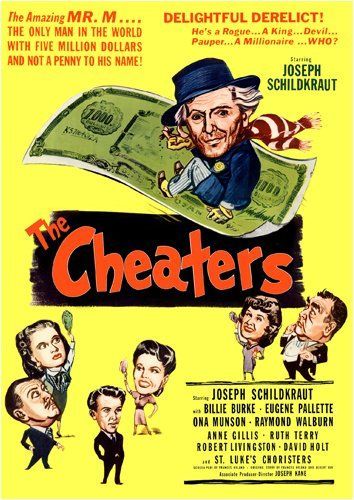This post is part of the 31 Days of Oscar Blogathon, hosted by Once Upon a Screen, Outspoken & Freckled and Paula’s Cinema Club. It runs Feb. 1 – Mar. 3, in conjunction with Turner Classic Movies’ 31 Days of Oscar.
Occasionally you look at Academy Award winners, raise an eyebrow and say, “Really?”
Luise Rainer’s 1936 Best Actress win for “The Great Ziegfeld” is one of those for me.
Now don’t get me wrong. I adore Rainer, nicknamed “The Viennese Teardrop.”

Luise Rainer as Anna Held in “The Great Ziegfeld”
It’s amazing that she was the first actress to win two Best Actress Awards back to back and is still with us at age 103. She did a good job with her role in “The Great Ziegfeld” but it did not leave me wowed.
“The Great Ziegfeld” is a fictionalized biography of Broadway producer Florenz Ziegfeld, played by William Powell.
Rainer plays Anna Held, who the film says is Ziegfeld’s first wife. In reality, Held and Ziegfeld lived together for a year while she was getting divorced. After the divorce was finalized, the couple announced that they considered themselves married, though they never officially were, according to Musicals 101. Ziegfeld later went on to marry Billie Burke, who many people know as Glenda the Good Witch in “The Wizard of Oz” (1939). Burke is played by Myrna Loy in the film.
Out of the nearly three hour movie, Rainer is in roughly 40 minutes.
In the film, Held is a bit of a diva. For example, she throws a temper tantrum (and orchids) when Ziegfeld tells the press that Held bathes in milk for publicity. Another time she gets upset because Ziegfeld is producing two shows, and will only let her be in one.
“I’m so disappointed in you I could scream,” she cries. “I thought you loved me more than anything else in the world. I thought I was your one ideal, your only ambition.”
In the end, Ziegfeld treats Held rather badly, going after a character played by Virginia Bruce in the film. I think Bruce’s character is supposed to be Lilliane Lorraine, who Ziegfeld left Held for in real life. In the movie, Anna Held leaves Ziegfeld after seeing him embracing another woman.
So let’s see who was Rainer up against in 1936:
-Irene Dunne for “Theodora Goes Wild ”
-Gladys George for Valiant is the Word for Carrie
-Carole Lombard for My Man Godfrey
-Norma Shearer for Romeo and Juliet
Of those films, the only one I haven’t seen is “Valiant is the Word for Carrie.”
Shearer, Dunne and Lombard were already established stars and are all excellent in their films.
However here is why I don’t believe they won:
1. “Theodora Goes Wild” and “My Man Godfrey” both were comedic roles. Though comedy is usually more difficult to perform, it doesn’t seem to be taken as seriously with awards.
2. Shearer is good as Juliet in “Romeo and Juliet,” but she is a 34-year-old woman playing a 16-year-old girl. That may not have had anything to do with her not winning the award, but it does make the role less believable.
The 1936 Academy Awards had other odd nominations:
-Deanna Durbin musical “Three Smart Girls” was nominated for Best Picture
-Stuart Erwin was nominated for Best Supporting Actor for “Pigskin Parade”
-Best Song nomination for “Do I Remember?” from “Suzy,” a song performed by a dubbed Jean Harlow.
Apparently, Rainer’s win was also controversial at the time, since she was still rather unknown and the role was considered more a supporting one.

Luise Rainer (center in black) performing “It’s Delightful to Be Married.”
Some say she won because of the $2 million budget MGM studio head Louis B. Mayer spent on the film (though this doesn’t make since to me, since it also won Best Picture). Others say it’s because of the broken hearted telephone call to Ziegfeld, congratulating him on his marriage to Billie Burke.
Why do I think Rainer won the 1936 Best Actress Award?
I personally wonder if it was process of elimination and reluctance to give the award for a comedic performance.
Who do I feel deserved the award? Either Dunne or Lombard.
Rainer went on to win the Academy Award for Best Actress in 1937 for her role as O-Lan, a Chinese woman, in “The Good Earth.” The role is a personal favorite of Rainer’s, and an award I feel she deserved.
Winning the Academy Award two years in a row is something Rainer said was one of the worse things that could have happened to her.
“The Oscar is not the curse,” she said. “The real curse is that once you have an Oscar, they think you can do anything.”
Check out the Comet Over Hollywood Facebook page
Love what you read? Share it:

 1939 film:
1939 film: 

